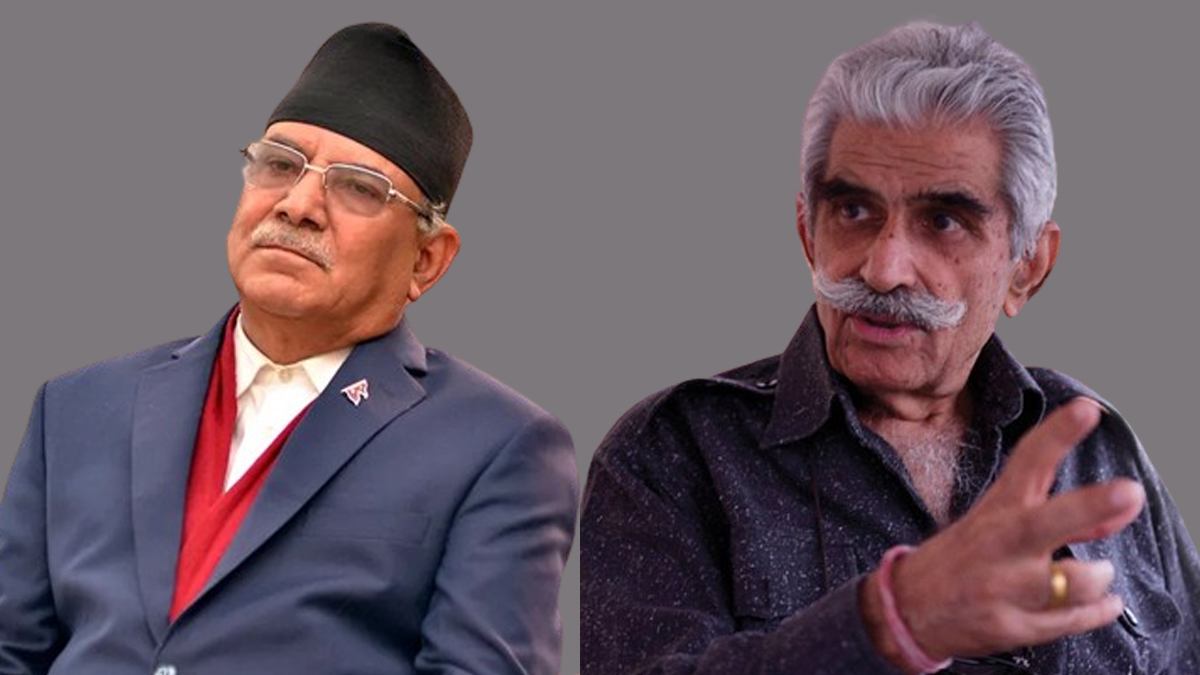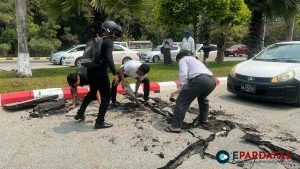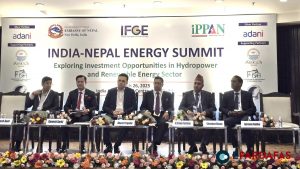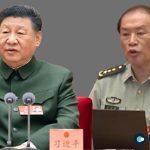
China’s Shadow, India’s Light: Ashok K. Mehta’s Insights on Prachanda’s Rule

In a recent article published in The Pioneer Epaper, renowned writer and strategic analyst Ashok K. Mehta provided a comprehensive analysis of Nepal’s political landscape under the leadership of Prime Minister Pushpa Kamal Dahal, commonly known as Prachanda.
In his analysis, Mehta navigates through the complexities of Prachanda’s governance, where the shadows cast by China’s assertive diplomacy loom large, while India’s presence emerges as a stabilizing force. His insights shed light on various aspects of Nepal’s governance, foreign relations, and economic challenges.
Here is a succinct summary of the spectrum of issues addressed by Mehta:
Prachanda’s Third Term Success: Mehta lauds Prime Minister Prachanda’s 13-month tenure in his third term, despite his Maoist party’s meager parliamentary representation of just 32 seats, signaling a significant achievement in governance.
Characterization of Prachanda’s Leadership: Drawing from the perspective of a seasoned Nepali journalist, Mehta elaborates on the characterization of Prachanda’s leadership as “firm, polished, and people-oriented,” underscoring his adeptness in navigating complex governance issues.
Power-sharing Dynamics: Mehta delves into the intricate web of power-sharing within Nepal’s coalition government, highlighting the nuanced negotiations and divergent perspectives among key political stakeholders, including Prachanda, Sher Bahadur Deuba, and Madhav Nepal.
Power-sharing Formulas: Mehta meticulously outlines the proposed power-sharing formulas, such as the “two-one-two” arrangement, “two and a half and two and a half” distribution, and the possibility of Prachanda serving a full five-year term, reflecting the intricate maneuvering within the political landscape. In Mehta’s words, “The figures indicate the number of years of premiership. The first set relates to Prachanda and Deuba doing two years each while Madhav Nepal would get one year. The second is minus Madhav Nepal.”
KP Oli’s Influence: Mehta sheds light on former Prime Minister KP Oli’s steadfast opposition to Madhav Nepal assuming the premiership, despite historical instances of power-sharing between Prachanda and Deuba, underscoring the complexities of coalition politics.
Strategic Alliances: Mehta analyzes Prachanda’s strategic signaling of a potential return to the CPN (UML) fold, highlighting the consequential implications for Nepal’s geopolitical alignments in relation to China and India, and the delicate balance of power therein.
China’s Influence: Mehta delves into the escalating concerns surrounding China’s burgeoning influence in Nepal, citing instances of border encroachments and economic entanglements, which pose significant challenges to Nepal’s sovereignty and autonomy.
Contrasting India-China Relations: Mehta juxtaposes China’s grand promises with India’s tangible contributions to Nepal’s infrastructure and trade relations, prompting a critical examination of Nepal’s geopolitical allegiances and strategic interests.
Balancing Major Powers: Mehta elucidates Nepal’s intricate foreign relations strategy, emphasizing the imperative of balancing relations with major powers such as the US, China, and India to safeguard its national sovereignty and economic interests.
Stance on International Issues: Mehta scrutinizes Nepal’s diplomatic stance on international issues, including its critique of Israel’s actions in Gaza and its position on Russia’s conflict with Ukraine, reflecting Nepal’s pursuit of an independent foreign policy agenda.
Corruption Concerns: Mehta highlights pervasive corruption as a formidable challenge in Nepal’s governance landscape, with high-profile individuals facing investigations or incarceration, signaling the need for robust anti-corruption measures and institutional reforms.
Infrastructure Projects: Mehta underscores the critical scrutiny surrounding infrastructure projects such as the Pokhara International Airport, cautioning against potential pitfalls akin to other Chinese-led projects in Sri Lanka, and advocating for transparency and accountability in project execution.
China’s Diplomatic Tactics: Mehta exposes China’s assertive diplomatic tactics in Nepal, exemplified by former Ambassador Hou Yanxi’s aggressive maneuvers, which raise concerns about Nepal’s susceptibility to external influence and coercion.
Border Incursions: Mehta documents instances of Chinese encroachments along the Nepal-China border, including the removal of border pillars and construction of dual-use villages, highlighting the urgency of safeguarding Nepal’s territorial integrity.
Nepal’s Response: Mehta critiques Nepal’s muted response to Chinese incursions and its reluctance to confront Chinese criticisms of India, underscoring the delicate balancing act in Nepal’s foreign relations strategy.
Unfulfilled Agreements: Mehta recalls past agreements between Nepal and China, such as the Trade and Transit Treaty, which failed to materialize, raising questions about the efficacy of China’s commitments and Nepal’s strategic calculus.
India’s Support: Mehta underscores India’s steadfast support for Nepal’s development, including the provision of petroleum and crucial infrastructure projects, contrasting India’s tangible contributions with China’s unfulfilled promises.
Connectivity Projects: Mehta examines proposed connectivity projects by both India and China, emphasizing the imperative of transparent funding mechanisms and robust progress monitoring to ensure sustainable development and economic growth in Nepal.
Economic Potential: Mehta explores Nepal’s untapped economic potential, particularly in the energy sector, advocating for leveraging resources to redress trade imbalances and foster sustainable economic development.
Infrastructure Challenges: Mehta highlights the urgent need to address infrastructure challenges, citing concerns about the state of the Pokhara airport and broader infrastructure deficiencies, underscoring the imperative of effective infrastructure management and development planning.












Comments